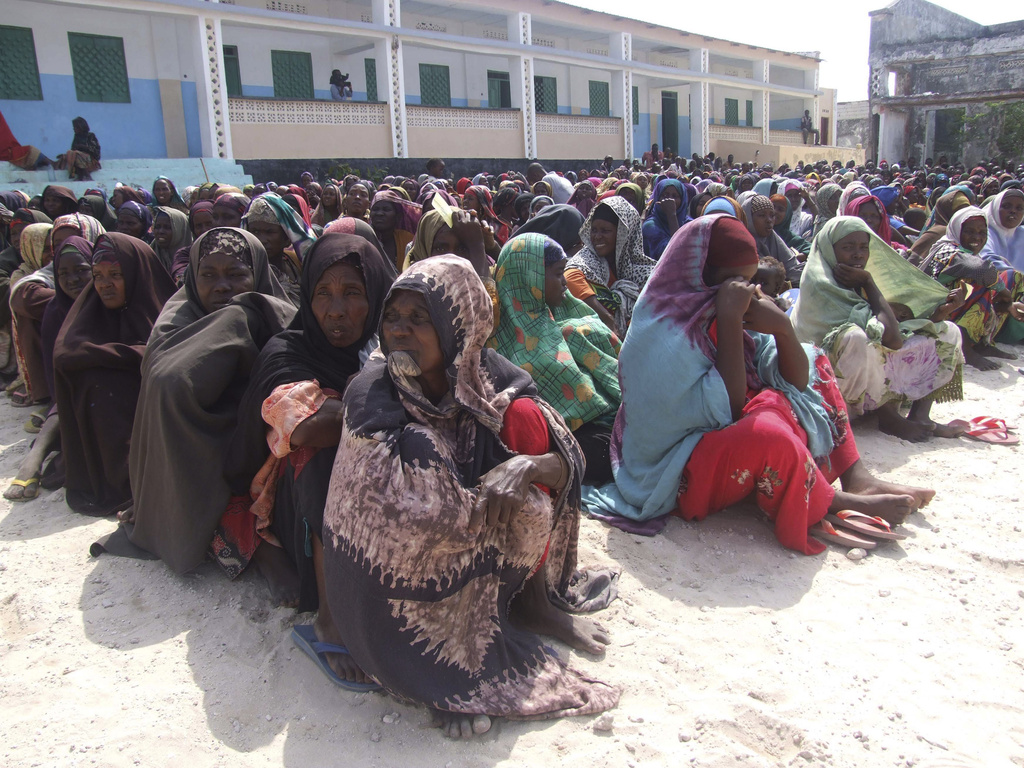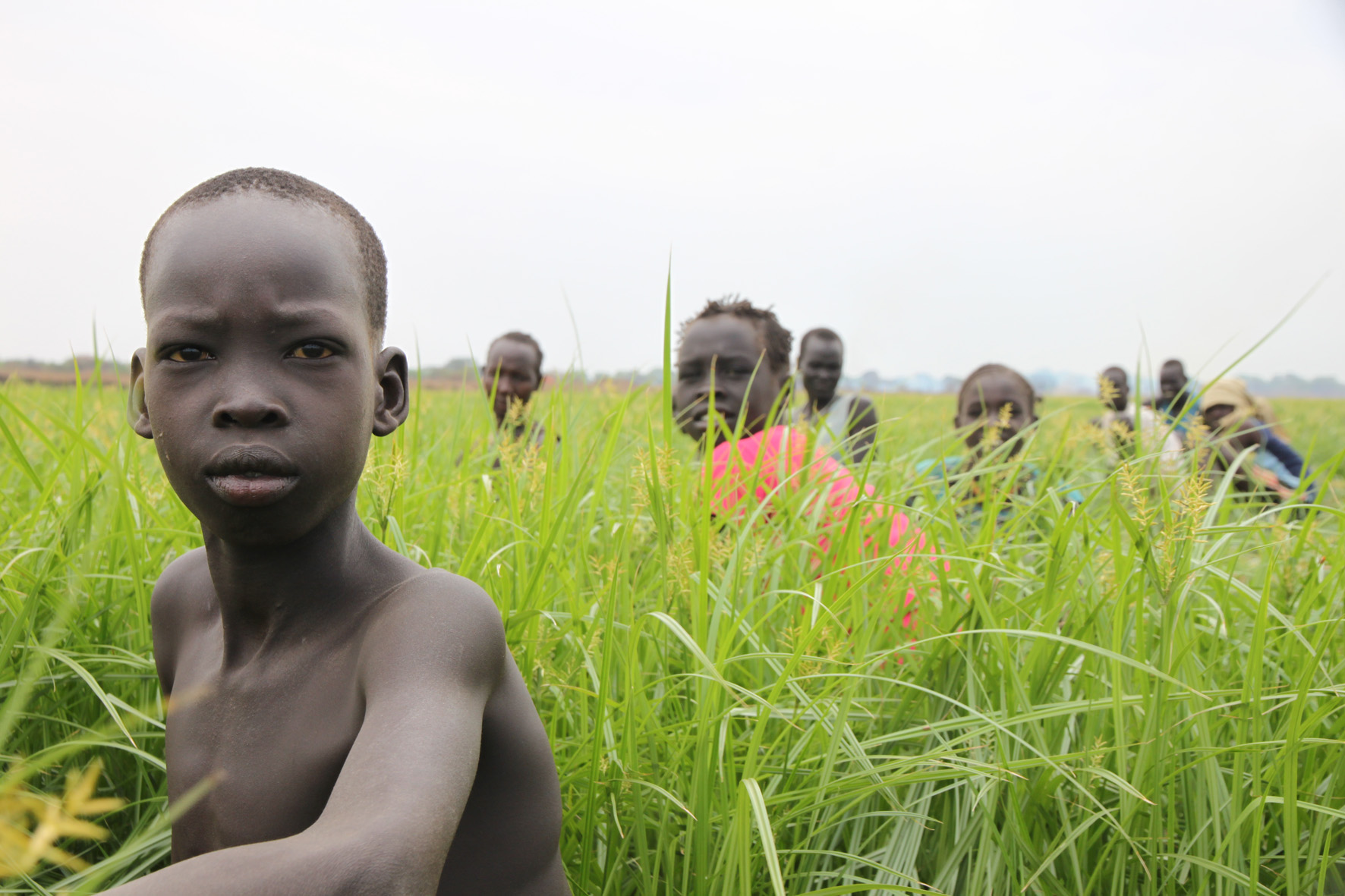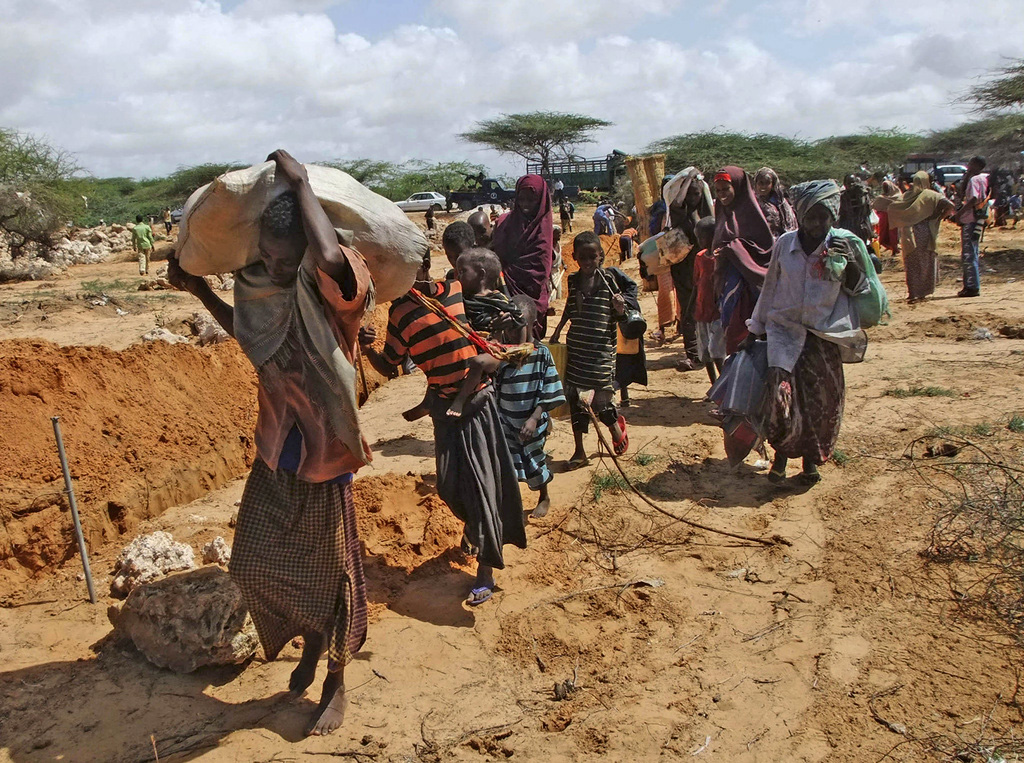Somali ambassador urges world action on famine

Somalia’s ambassador to the United Nations in Geneva has sounded the alarm over the desperate food shortage in his country, where famine has been declared in the south.
For several years, Yusuf Muhammad Isma’il has ensured a diplomatic presence for Somalia, hit by civil war over the past 20 years and now suffering from the effects of drought and famine.
In an interview with swissinfo.ch, the ambassador said that in addition to the political crisis the country was now facing its worst humanitarian crisis in 60 years.
Humanitarian organisations and the UN have raised the alert over the health and food situation in the Horn of Africa in general and in the Somali refugee camps in Ethiopia in particular.
The UN High Commissioner for Refugees (UNHCR) announced on July 19 in Geneva that the mortality rate had reached 7.4 deaths per 10,000, which is “sharply above the sub-Saharan baseline”, according to Paul Spiegel, the UNHCR’s chief of public health.
Although describing an area as “famine-stricken” requires specific statistics about the entire region, not only the refugee camps, the UNHCR expert pointed out that “the malnutrition rate inside the camps has reached 26.8 per cent”. The UN Food and Agriculture Organisation said last week that more than 12 million people were suffering from the effects of drought and famine in the countries of the Horn of Africa (Eritrea, Ethiopia and Somalia).
Isma’il recalled that the warning of a potential disaster had been made several times over the past ten years. More than four million people from Somalia alone are believed to have escaped to Kenya and Ethiopia, in addition to internal displacement towards the stable areas in the north of the country and towards the capital, Mogadishu.
“We repeatedly reiterated our warning to the international group about the risk of a potential crisis, but no one paid attention to the information we provided,” the Somali ambassador said.
Isma’il also criticised the “inadequate response to the current crisis”. “What we notice is that each UN agency performs its activities separately without coordination with other organisations, the Somali government, or even the UN peacekeeping forces stationed on the ground.”
Accusations and appeal
“While we underline the need for the UN to take preventive measures, we notice that it focuses on emergency assistance operations only,” said the Somali ambassador.
Isma’il goes as far as accusing certain organisations of “politicising the humanitarian crisis” for their own ends, while ignoring human rights. He criticises the Geneva-based Human Rights Council in particular for not paying adequate attention to human rights issues in Somalia.
“Not only because it did not hold a special session on the situation in Somalia, but also because it did not move on the special mechanisms set by two special rapporteurs on the right to food and economic and cultural rights.”
The ambassador underlined “the need to hold the UN and humanitarian organisations working in Somalia accountable for the way they spend collected funds, and to force these organisations to present the outcome of their activities to representatives of the international group”.
“We must work to address the actual causes of the current crisis and avoid the recurrence of the effects of a new period of drought next year, which could burden donor countries,” Isma’il said.
The Somali ambassador made a plea in particular to Arab and Muslim countries, saying that what is happening to Somalia today could happen to them too.
Isma’il said the Organisation of Islamic Conference (OIC) had issued an appeal to Muslim nations to provide assistance to Somalia and voiced the hope that Muslim countries would “move quickly to coordinate among themselves to support their brothers in Somalia, particularly as the holy fasting month [Ramadan] is about to start”.
Somali responsibility
Although recognising that foreign influences contributed to complicating the situation in Somalia, the responsibility for what has been happening there for more than two decades rested primarily with Somalis with their different attitudes and political, ideological and tribal affiliations, the ambassador said.
“There is no doubt that we have destroyed the country with our own hands, and we should bear responsibility for that,” he told swissinfo.ch.
Ambassador Isma’il expressed thanks to the Somali community abroad for their support. But he acknowledged that the way out of the problem lay in “a political solution, which Somalis alone must reach”.
The diplomat sees the core of the Somali problem as being “how to harmonise the traditional norms and the requirements of a modern system of government”. He believes that the solution lies in “finding a peaceful way to build the state, or – in other words – reconciling the two tracks at the same time: the track of state-building, and the track of peace-making”.
But the ambassador rules out a division of the country, along the lines of South Sudan, which declared independence earlier this month. “Division is not an acceptable or reasonable solution for Somalia, rather the solution lies in the establishment of a federal and decentralised system that takes into account the sharing of resources, the political representation of all, and the respect of minorities”.
On practical steps to find a solution to the political problem, Ambassador Isma’il said discussions were underway about holding a conference after Ramadan, in which all factions would participate in order to put an end to the conflict, which has marked two generations of Somalis.
Yusuf Muhammad Isma’il was appointed Somalia’s envoy to the UN in Geneva in 2008. He assumed not only the diplomatic representation of the country facing collapse, but also the task of paying the expenses of the mission and the hospital expenses of the terminally ill former ambassador, as no funds were forthcoming from the capital Mogadishu.
However, the lack of resources did not prevent the Somali ambassador from getting support inside the Human Rights Council to approve five draft resolutions concerning the situation in Somalia. Indeed, the Somali mission submitted its report on Somalia to the universal periodic review mechanism (of the Human Rights Council) in May 2011.
In response to the new drought crisis in the Horn of Africa, the Swiss authorities have allocated an additional SFr4.5 million in emergency aid. Since the beginning this year, Switzerland has allocated SFr14 million to support the drought-stricken areas in Kenya, Ethiopia and Somalia.
Switzerland supports projects run by UN organisations, such as the High Commissioner for Refugees (UNHCR), as well as the International Red Cross and Swiss humanitarian organisations.
Isma’il extended his thanks to the Swiss authorities for supporting the refugees. He voiced hope that “the Swiss people and the Muslim community in Switzerland will participate in efforts to alleviate the sufferings of their brothers in Somalia”.
The Somali ambassador believes Switzerland can play a more significant role in development, such as possible participation in a project for the establishment of an international alliance to oversee a drinking water and sewerage project in Somalia.
The number of Somalis living in Switzerland exceeds 10,000.
(Translated from Arabic by Muhammad Shokry)

In compliance with the JTI standards
More: SWI swissinfo.ch certified by the Journalism Trust Initiative














You can find an overview of ongoing debates with our journalists here . Please join us!
If you want to start a conversation about a topic raised in this article or want to report factual errors, email us at english@swissinfo.ch.